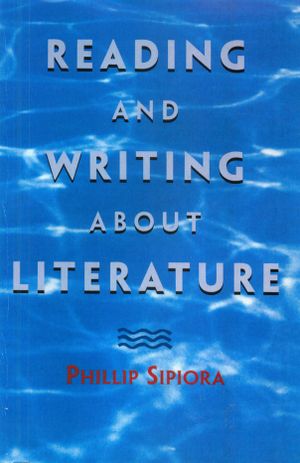| Requirement | %[1] |
|---|---|
| Reading | 30% |
| Writing | 40% |
| Lesson Tests | 20% |
| Attendance | 10% |
This course is composed of three general requirements: reading, writing, and lesson tests. The two former requirements will be on-going throughout the semester, will require regular contributions, and may be comprised of various assignments. Lesson tests will conclude each unit and quiz your knowledge of the reading and your ability to analyze and interpret the literary works.
Reading
Each lesson’s major focus will be reading primary texts (the literature) and secondary texts (critical response to the literature). Reading quizzes will test your knowledge of the materials, focusing on factual details like plot points, rather than interpretative readings. Students should take thorough notes as they read—like character names, plot points, and other details—that will help them on quizzes and later analysis of the texts in their writing.
Reading quizzes and in-class assignments cannot be made up for any reason.
Writing
Each lesson will have students responding to assigned readings. These assignments should be focused, analytical, and supported by primary and secondary texts. They should show what you’re reading and thinking about in relation to the course content—it is a place to share and develop ideas about the texts.
Due before midterm, the Short Lit Crit Response will have students research and write about one of the texts we have studied in class.
Tests
Students’ knowledge of the course texts, both primary and secondary, will be tested at the end of each lesson. These short-answer tests will quiz your knowledge of the subject matter (texts, lecture material, and vocabulary), your ability to synthesize this material, and your creativity in going beyond the discussion and lecture materials. The tests could include vocabulary, identification, and interpretation. Test grades will be based upon objective knowledge of the material, thoroughness, depth of insight, precision, and originality.[2]
Required Materials

Our introduction to college literary studies this semester will have one required textbook:
- Sipiora, Phillip (January 1, 1994). Reading and Writing About Literature. Upper Saddle River, NJ: Prentice Hall.
Your course book(s) or readings should always accompany you to class, as we will make heavy use of them in our daily discussions. Please do not come to class without it: we need the texts for class activities, in-class writing, and all aspects of our study. PDFs must be printed if they are used in class—this includes exams. Failure to do so will earn you an absence .
You should also bring an ink interface of some sort, as well as dead trees on which to take notes. Notes should not only reflect good listening skills, but individual interest in every topic discussed in class.
notes
- ↑ This is the general percentage breakdown for these requirements. As I use a point system for evaluation, the percentages are just an estimate.
- ↑ See the various resources available on this web site to help. They should assist in exam prep and provide guidance for your study throughout the semester.
| 🕒 07-9-2021 | 📆 Make an Appointment | 💬 Ask a Question | 📣 Leave Feedback |


